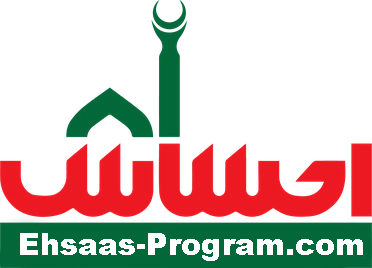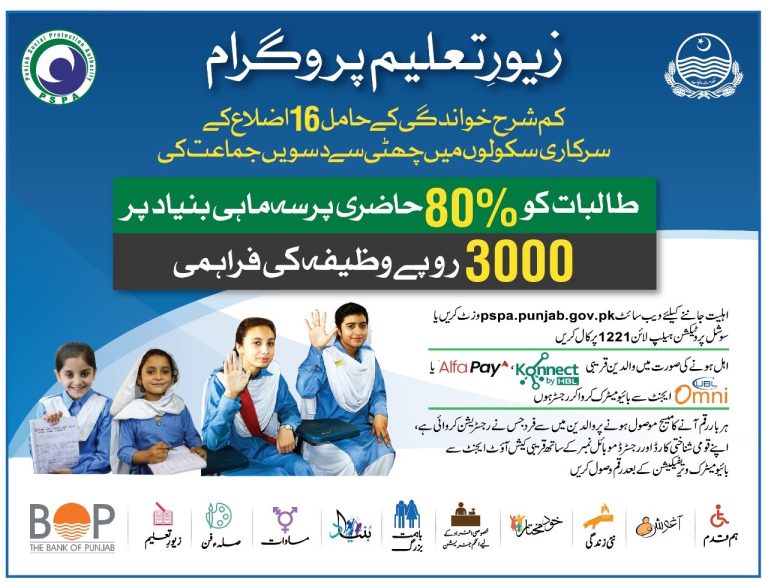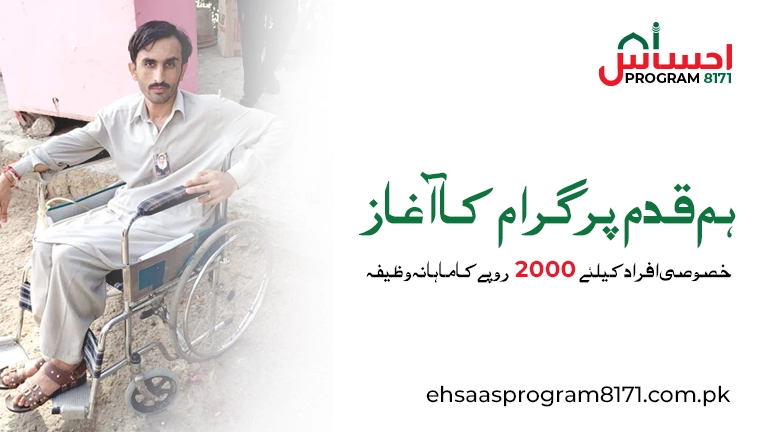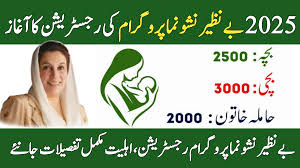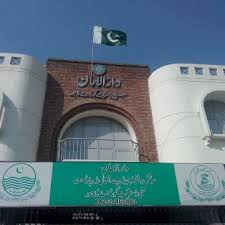
Women Shelter Homes (Dar-ul-Aman) – A Safe Haven for Women in Distress
The Social Welfare Department of Punjab initiated Dar-ul-Aman as a sanctuary for women survivors of violence. Originally set up in the 8 divisional headquarters, the rising awareness about women’s rights led to the expansion of these shelters across all 36 districts of Punjab. Each facility accommodates 20 to 50 women, providing a secure, supportive environment.
Who Can Stay in Dar-ul-Aman?
Women from all walks of life facing violence, abuse, or threats—including physical, sexual, or psychological—are eligible to stay. Admission is open:
-
On referral by courts or NGOs
-
Through self-admission
-
At any time, day or night
-
With children, if applicable
Services and Facilities
Dar-ul-Aman offers comprehensive care, including:
-
Safe shelter and basic necessities
-
Medical and psychological care
-
Legal aid through designated lawyers
-
Vocational training and religious education
-
Recreational activities and education for residents’ children
-
24/7 security and monitoring
Improving Dar-ul-Aman Operations
To ensure high-quality service delivery, the department has implemented:
-
General and Protection Guidelines
-
Minimum Standards for care
-
Advisory Committees for each shelter
-
Dedicated Complaint Management Committees
Yearly evaluation and monthly reporting systems
Dar-ul-Falah – Homes for Mothers and Children in Need
Dar-ul-Falah shelters offer hope and dignity to widows, divorced, deserted, or separated women and their children. Established in 1966 in Sialkot, and later expanded to six divisional headquarters including Lahore, Rawalpindi, and Multan, each facility accommodates up to 30 women and their children.
Who Can Apply?Dar-ul-Aman
Eligibility includes:
-
Widows or separated women without financial support
-
Women with children whose husbands are long-term convicts or patients
-
War widows and their dependent children
-
Children up to 11 years (boys) and 18 years (girls)
-
Special cases are considered under state protocol
Note: Women with severe health conditions or disabilities are referred to specialized institutions.
How to Apply?Dar-ul-Aman
-
Applications are accepted through registered NGOs, courts, police, and directly by individuals
-
Necessary documents: photos, CNIC, and proof of widowhood or divorce
-
Medical check-up is mandatory at the time of admission and yearly thereafter
Services Offered,Dar-ul-Aman
Residents benefit from:
-
-
Free shelter, medical care, clothing, and a monthly stipend (PKR 3000–3500)
-
Educational and vocational training for women and children
-
Marriage assistance (with the resident’s consent)
-
Employment opportunities for skilled or educated women
-
Ongoing counseling and reintegration support
-
Social Welfare & Women Empowerment: Key Initiatives
The Government of Khyber Pakhtunkhwa has taken strategic steps from 2013–2018 under its Women Empowerment Action Plan. Key programs include:
Special Education and Disability Rights
-
Center of Excellence for Special Education, Hayatabad
-
Provincial Special Education Policy in line with UNCRPD Article 24
-
Department of Special Education and Rehabilitation Sciences at University of Peshawar
-
Training of 14 professionals in physiotherapy and rehabilitation
Women and Orphans Welfare
-
Legislation for Widows and Orphans Welfare Foundation
-
Formation of support committees
-
Ongoing recruitment to support women-focused programs
NGO and Disability Policy Reforms
-
NGO registration and cleanup drive (1583 of 4000 NGOs verified)
-
Drafting of Khyber Pakhtunkhwa Disability Act 2014
-
Upgradation of Special Education Schools across the province
Empowering Women Through Policy and Action
-
Women Empowerment Policy approved and notified by the Chief Minister
-
Sensitization Campaigns in Swat, Mardan, Peshawar, and other districts
-
Distribution of wheelchairs and tricycles with awareness sessions
-
Child Marriage Restraint Bill sent for review by the Islamic Ideology Council

National Collaborations: Empowering Women Through Partnerships
The Women Welfare and Development Centre (WWDC), under the Ministry of Human Rights, celebrated International Volunteer Day with partners like:
-
Alkhidmat Foundation
-
Pakistan Red Crescent
-
Pakistan Girl Guides Association
-
Blue TV Rozan
-
Ch. Muhammad Hussain Natt Trust Hospital
Highlights included:
- Volunteer appreciation ceremony
- Panel discussions on the power of volunteerism
- Free eye medical camp benefiting underserved communities

WHAES Pakistan: Health and Education Services for Women
Since 2004, Women’s Health and Education Services Pakistan (WHAES) has been transforming lives through:
- Free medical camps and awareness seminars
- Customized health and education courses for women
Advanced ultrasound courses for MBBS doctors and health professionals, affiliated with reputable institutions nationally and internationally
Important Link & Address
DAR UL AMAN
Dar Ul Aman serves as a government-operated shelter home for women facing domestic violence, harassment, or social injustice. These centers provide temporary housing, legal support, counseling, and protection to help women rebuild their lives safely.
DAR UL AMAN RAWALPINDI
Dar Ul Aman in Rawalpindi offers a secure refuge for distressed women in the region. Established by the Social Welfare Department, it provides shelter, food, medical care, and legal assistance to help residents recover and move forward.
Address: Azam Road, Shamsabad, Rawalpindi, Punjab, Pakistan
Phone: 051-4920304
DAR UL AMAN RULES IN URDU
Dar Ul Aman centers operate under specific regulations to ensure the safety and well-being of their residents. These rules, often documented in Urdu for accessibility, cover admission procedures, visitor guidelines, privacy policies, and resident responsibilities.
DAR UL AMAN MARRIAGE
In certain cases, Dar Ul Aman facilitates safe marriages for women facing forced or illegal marriage situations. The institution ensures legal consent and security before marriage and often collaborates with the court system to protect women’s rights.
DAR UL AMAN FOUNDATION KARACHI
The Dar Ul Aman Foundation in Karachi is a non-profit organization dedicated to providing a stable and nurturing environment for vulnerable women. It focuses on rehabilitation, vocational training, and long-term empowerment for residents.
DAR UL AMAN ISLAMABAD
Dar Ul Aman Islamabad functions under the Islamabad Capital Territory Administration, offering protection to women in need. It includes legal aid, psychological support, and basic necessities to help residents overcome traumatic experiences.
DAR UL AMAN KARACHI
Dar Ul Aman Karachi provides shelter and legal support to women facing abuse, family conflict, or abandonment. It plays a key role in the city’s social protection framework and partners with welfare organizations for better rehabilitation.
Address: Plot No. ST-6, Block 10, Federal B Area, Karachi, Pakistan
Phone: 021-3630025-28, 021-35832041, 021-35832042
DAR UL AMAN FAISALABAD LOCATION
Located within Faisalabad city, Dar Ul Aman is accessible to women across the district seeking urgent shelter. The facility offers a safe environment along with necessary support services.
Address: 519-A Block, Ghulam Muhammad Abad, Faisalabad, Pakistan
Phone: 041-9239013
DAR UL AMAN RAWALPINDI CONTACT NUMBER
For emergencies or inquiries regarding Dar Ul Aman Rawalpindi, individuals can reach out to the local Social Welfare Department. The helpline provides information on admission, rules, and available support services for women in crisis.
Phone: 051-4920304
DAR UL AMAN KARACHI CONTACT NUMBER
To contact Dar Ul Aman Karachi for assistance or information, individuals can use the following numbers:
Phone: 021-3630025-28, 021-35832041, 021-35832042
DAR UL AMAN MULTAN
Dar Ul Aman in Multan provides temporary housing and support services to women affected by domestic violence, abandonment, or legal conflicts. It ensures security, legal aid, and counseling to help residents regain control of their lives.
Address: Social Welfare Complex, Matti Tal Road, Multan, Pakistan
Phone: 061-9220532
DAR UL AMAN CHAKWAL
Dar Ul Aman Chakwal offers a protected space for women in need of refuge. The facility is supported by district authorities and caters to short-term shelter needs, ensuring safety and access to essential social services.
Address: Social Welfare Office, near Govt. Girls College, Mohallah Sargojrah, Chakwal, Pakistan
Phone: 0543-541301
DAR UL AMAN LAHORE LOCATION
Dar Ul Aman Lahore is located in a secure area of the city and is easily reachable by women seeking emergency support. It operates under Punjab’s Social Welfare Department and provides a broad range of rehabilitation services.
Address: 36/30-E, Chowk Yateem Khana, Bund Road near Police Station Nawan Kot, Lahore, Pakistan
Phone: 042-37468403
DAR UL AMAN PESHAWAR
Dar Ul Aman Peshawar is part of the provincial welfare system and offers refuge to women escaping violence or exploitation. With trained staff and legal support, it aims to provide safety and restore dignity to its residents.
Address: Women Crisis Center, Special Education Complex, near RMI Hospital, Phase 5, Hayatabad, Peshawar, Pakistan
Phone: 091-5892726
DAR UL AMAN RAWALPINDI LOCATION
The Dar Ul Aman Rawalpindi facility is situated within the city and can be accessed via referral from the court or Social Welfare Office. The location is kept semi-confidential to ensure the safety of its residents.
Address: Azam Road, Shamsabad, Rawalpindi, Punjab, Pakistan
Phone: 051-4920304
DAR UL AMAN SIALKOT
Dar Ul Aman in Sialkot helps women in crisis by offering a temporary haven from abuse, threats, or forced marriages. The shelter also provides legal and medical services to support their recovery and independence.
DAR UL AMAN BAHAWALPUR
In Bahawalpur, Dar Ul Aman is a government initiative to safeguard women who are at risk or in distress. The shelter ensures privacy, legal protection, and essential resources for rehabilitation and reintegration into society.
Address: Dilawar Colony, Airport Road, Bahawalpur, Pakistan
FAQs
What is Dar-ul-Aman and who can benefit from it?
Dar-ul-Aman is a government-run women shelter home providing safety, temporary residence, legal aid, medical care, and vocational support for women in distress—especially victims of domestic violence, forced marriages, or life-threatening situations. Women can come directly, or be referred through courts, police, or NGOs.
What facilities are available at Dar-ul-Falah?
Dar-ul-Falah offers shelter, free medical care, vocational and religious education, clothing, a monthly stipend, and support for separated, divorced, widowed, or abandoned women and their children. It also facilitates safe rehabilitation and even matrimonial assistance.
Are children allowed to stay in shelter homes with their mothers?
Yes, children—especially dependent boys (up to age 11) and girls (up to age 18)—can stay with their mothers in both Dar-ul-Aman and Dar-ul-Falah. Special cases may allow flexibility on age limits.
Is legal aid provided to residents?
Absolutely. A pool of certified lawyers is assigned to Dar-ul-Aman shelters to provide **free legal assistance** to all women seeking justice and protection.
How can someone apply for admission to a shelter home?
Women can apply directly or be referred by social welfare agencies, police, courts, or hospitals. They need to submit an application along with identification documents, photos, and any relevant legal papers like death or divorce certificates.
Are there any monitoring systems for shelter homes?
Yes. A complete monitoring and evaluation system exists to ensure transparency and quality services. This includes monthly progress reports, health/hygiene assessments, and action planning cycles managed by the Social Welfare Department.
Conclusion
Through initiatives like Dar-ul-Aman, Dar-ul-Falah, and broader programs for women’s empowerment, the Government of Pakistan—alongside non-governmental partners—continues to create safe spaces, provide life-changing support, and uphold the rights and dignity of women across the country.
These shelters and services are not just buildings—they are beacons of hope, offering protection, healing, education, and new beginnings for women and children in distress. From legal aid to vocational training, from special education to healthcare access, every program is a step toward a more inclusive and empowered society.
As awareness grows and more voices join the cause, it becomes clear that investing in women’s welfare is not just social progress—it’s a collective responsibility. Together, we can build a future where no woman is left behind, and every woman feels safe, supported, and seen.
